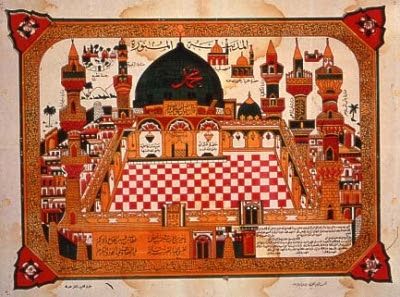Covert operations and proxy wars filed the history of the Cold War – a battle between 2 superpowers of the 20th century. Covert operations and proxy wars, however, already existed way before and used by many of the great empires in history to weaken or humiliate rival powers. Such as the case of the Byzantine Empire and the Umayyad Caliphate in the late 7th and early 8th century, when Emperor Justinian II sent his spartharios, the future Emperor Leo III, to the Alans and help them defeat the Abasgians who switched their fealty in favor of the Muslim Empire.
Showing posts with label 7th century. Show all posts
Showing posts with label 7th century. Show all posts
Justinian Plague: The Declined of the Byzantines
 |
| Emperor Justinian |
Two
major civilization declined and fell in the hands of vicious plagues. Athens,
the center of learning and culture of the ancient world, fell in the hands of
the Great Athenian Plague. It led to the eventual collapse of the most powerful
city-state in the region. Then in the 2nd century CE, the glorious and peaceful
period of Rome, dubbed as Pax Romana, ended with the deaths caused by another
plague, the Antonine Plague. Almost four centuries after the spread of the
Antonine Plague, another Empire was on the brink of either glory or the abyss,
the Byzantine Empire. And with an ambitious Emperor in the throne, the
Justinian Plague would decide the destiny of a revival of the glory that was
Rome.
The Umayyads: Abd al-Malik ibn Marwan
 From
the chaos brought by the death of Shias and Sunnis, a new caliphate rose. From
the brutal murder of Caliph Uthman and the disintegration of order during the
reign of Caliph Ali, Governor Muawiya from Damascus fought hard in order to
establish a new caliphate from the ashes of the previous Rashidun caliphate.
The Umayyad Caliphate was the result of Muawiya’s efforts. And from the
foundation that Muawiya established, his successors would develop it to create
one of the largest empires that the world had ever seen. Considered a part of
the greatest caliphs of the Umayyad, Caliph Abd al-Malik ibn Marwan would
cement the caliphate in the world by war and by reforms.
From
the chaos brought by the death of Shias and Sunnis, a new caliphate rose. From
the brutal murder of Caliph Uthman and the disintegration of order during the
reign of Caliph Ali, Governor Muawiya from Damascus fought hard in order to
establish a new caliphate from the ashes of the previous Rashidun caliphate.
The Umayyad Caliphate was the result of Muawiya’s efforts. And from the
foundation that Muawiya established, his successors would develop it to create
one of the largest empires that the world had ever seen. Considered a part of
the greatest caliphs of the Umayyad, Caliph Abd al-Malik ibn Marwan would
cement the caliphate in the world by war and by reforms.The Rashidun: Uthman ibn Affan
 |
| Uthman ibn Affan |
The Rashidun: Umar ibn al-Khattab
 |
| Medina - Capital of Rashidun Caliphate |
Arabia, 632 - The Prophet Mohammad just passed away, leaving not
instruction who would succeed him. To solve the problem, the Companions
gathered in the hall in Central Arabia to discussed who would succeed the
Prophet. Four nominees were made. And from the four men, Abu Bakar, became the
successor and the first Rashidun Caliph. But, in just two years, the new Caliph
died. He passed the job to his supporter, Umar ibn al-Khattab.
The Rashidun Caliphate: Abu Bakar
 |
| Abu Bakar |
632,
Medina – an election was being held. The Prophet Mohammad had passed away. Four
Companions of the Prophet were nominated to become deputies of the new religion
of Islam. The future of the religion and the political entity that Mohammad
left hang in the balance. The man that rose as result of the election was one
of the closest to Mohammad, his father-in-law, Abu Bakar. From him a caliphate
would rose, the Rashidun. But who is Abu Bakar? What were his achievements?
What were his contributions to the growth of Islam?
Subscribe to:
Posts (Atom)
Popular Posts This Week
-
A mosaic from the city of Ur showing the activities of Sumerians such as weaving, herding, and farming Laid in one of the most fert...
-
BASF Factory (1881) She emerged as the most industrialized country by the end of the 19th century. Germany surpassed the home of the i...
-
The Nahuatl-speaking people of Aztecs, also called Tenochca or Mexica, overcame challenges that let them built one of the greatest Empire ...
-
Emperor Meiji Japan’s independence came under threat from the increasing presence of westerners in Asia. In 1858, the ships of Ameri...
-
Babur The Taj Mahal, symbol of the wealth and affluence of the Mughal Empire. Built by many workers for many years. Workers are fed fr...




.JPG)


